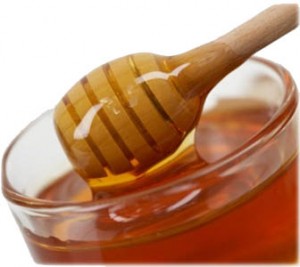 I just want you to know that even as a doctor who knows better…I still have a weakness for sweets. Don’t leave a bag of chocolate chip cookies in front of me…I can assure you they will be history in minutes.
I just want you to know that even as a doctor who knows better…I still have a weakness for sweets. Don’t leave a bag of chocolate chip cookies in front of me…I can assure you they will be history in minutes.
But I do want you to know that I’ve started making a better effort to limit my consumption of this unhealthy treat. And you should too!
What you need to be aware of is that calories from refined sugars are pure NOTHING! That’s right…they don’t give your body any nutrients. No vitamins. No minerals. What they can do really well is spike your blood sugar, triggering an insulin response in your body.
We all know that diets high in sugar can easily lead to weight gain. But what you might not know is that sugar can also depress your immune system, making you more prone to getting sick. Plus too much sugar has been proven to put your body at risk for adult-onset diabetes.
But all these medical warnings will probably not stop many of you from having those sudden urges for sweets. And they shouldn’t! The satisfying of your sweet tooth is a human desire. So here are a few natural substitutes that can serve a healthy and fun way to eat.
But the question arises, which ones are the best for our health? Let’s look at the list: you have aspartame, sucralose (commonly called Splenda ™), saccharin, honey, agave, and stevia. Choosing a sweetener that tastes good and that isn’t bad for you can start to seem pretty complicated.
Sugar Substitutes: The Good and the Bad
Let’s take a look at the pros and cons of each of these options, and then I’ll let you know what I recommend.
Aspartame: This is a non-nutritive sweetener, which is a fancy way of saying it doesn’t provide any calories to your body. It’s made out of two combined amino acids. It’s 180 times as sweet as table sugar, so you only need a small amount to sweeten your coffee.
This sweetener is not useful for baking because it breaks down and loses its sweetness. While the FDA labels it as safe, this is the most controversial of artificial sweeteners. It can cause allergic reactions, including hives. For some people, long-term use results in ringing in the ears and headaches. Some groups claim aspartame may cause certain types of cancers, but there isn’t conclusive research to support this.
Sucralose: Another non-nutritive sweetener, sucralose approximates sugar in its taste. You can also use it for baking. Sucralose is essentially sugar that’s been treated with chlorine so that it won’t absorb into your bloodstream.
Even so nearly 30% of sucralose does get absorbed into the body. While considered safe, there are no long-term studies ruling out long-term health effects from sucralose. Some people do complain of allergic reactions including hives, fatigue, and headaches.
Saccharin: Saccharin has been around for decades. For a time, it carried a warning label saying that it caused cancer in lab animals. It seems the animals had been exposed to huge amounts of saccharin, much more per body weight than a person would consume.
And after recent reviews of the studies the labels have been removed. But regardless, the biggest drawback for saccharin is its aftertaste, which is bitter.
Honey: Honey delivers calories to the body. It also creates a blood sugar/insulin reaction. On the other hand, honey is full of antibodies and antioxidants that are good for you. This is especially true if you use raw honey.
Stevia: Stevia is a plant that is much sweeter than sugar. A little bit of stevia can naturally sweeten your coffee or tea. There are plenty of recipes out there for stevia-sweetened baked goods that you can make at home. Stevia has not been approved in the U.S. as a food additive, but you can purchase it as a supplement at your local health food stores.
The biggest drawback for stevia is some people find that it tastes bitter to them rather than sweet.
Agave Nectar: This sweetener, derived from the agave cactus plant, tastes much like honey. It has a low glycemic index rating, so it doesn’t impact your blood sugar or insulin levels very much.
My Healthy Answer:
When it comes to sweeteners, I prefer to go natural. The truth is that for most people chemical sweeteners never have a negative effect. But every time you use an artificial sweetener, you ingest chemicals that aren’t natural to your body—which is something I think is best to be avoided.
The best alternative to sugar depends on your individual needs. If you are trying to cut calories, try Stevia. It’s so much more potent than sugar that you can use it in small amounts, making its calorie count non-existent.
If it’s blood sugar control that you’re concerned with try agave nectar. It has a more pleasing taste than Stevia for most people.
If you’re just looking for a healthier, more natural option than refined sugar, than by all means turn to honey.
When it comes to food—even sweets—natural is always better.
Stay well,
Mark Rosenberg, M.D.
Photo Credit: 39clues.wikia.com
